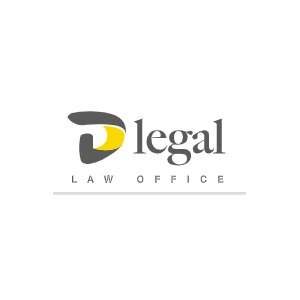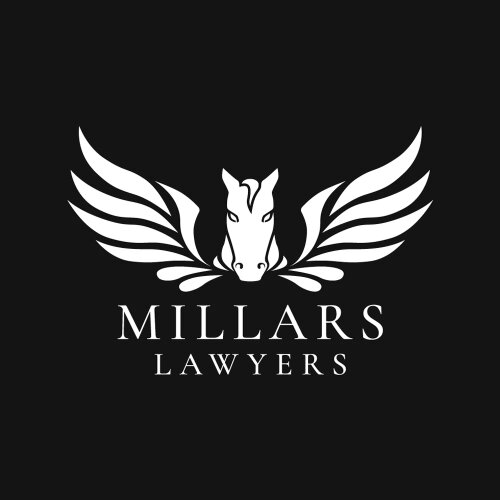Best Housing, Construction & Development Lawyers in Calgary
Share your needs with us, get contacted by law firms.
Free. Takes 2 min.
Free Guide to Hiring a Real Estate Lawyer
List of the best lawyers in Calgary, Canada
About Housing, Construction & Development Law in Calgary, Canada
Calgary, as one of Canada's fastest-growing cities, has a dynamic housing, construction, and development landscape. Laws governing these sectors focus on ensuring that the rapid urban growth aligns with safety standards, environmental considerations, and community planning principles. Regulations are in place to oversee residential and commercial construction, housing market operations, land development, zoning, and urban planning, all aimed at creating sustainable growth and enhancing the quality of life for residents.
Why You May Need a Lawyer
There are several instances where you might require legal assistance in housing, construction, and development:
- Disputes with contractors or developers over contract terms or project completion.
- Disagreements over property boundaries or encroachments.
- Concerns about zoning or land use regulations impacting your property development plans.
- Navigating tenant and landlord rights and obligations.
- Issues related to real estate transactions, such as purchase agreements or property transfers.
A lawyer can provide essential guidance and representation to protect your interests and ensure compliance with local laws.
Local Laws Overview
Calgary’s housing, construction, and development regulations are governed by several key legislative frameworks:
- Municipal Government Act (MGA): This acts as the cornerstone for local governance regarding land development and planning.
- Calgary Zoning Bylaws: These regulate land use within the city to balance economic growth with livability and environmental sustainability.
- Building Code: Enforces safety, health, and structural integrity in construction projects, ensuring that all buildings meet standardized criteria.
- Residential Tenancies Act (RTA): Governs the relationship between landlords and tenants, outlining rights and responsibilities.
Frequently Asked Questions
What is zoning, and how does it affect my property in Calgary?
Zoning refers to municipal regulations that dictate how land within certain areas can be used. These rules can impact what can be built on your property, how it's used, and the types of modifications that are allowable.
How do I resolve a dispute with a contractor?
If you're facing issues with a contractor, whether over quality of work, payments, or timelines, it’s advisable to attempt resolution through direct communication first. If this fails, consulting a lawyer may help you understand your contractual rights and potential remedies.
Can a tenant be evicted during winter in Calgary?
Evictions can technically occur at any time of the year, but specific legal processes must be followed under the Residential Tenancies Act. This ensures that the tenant’s rights are respected throughout the process.
What should I know about purchasing a condo in Calgary?
Purchasing a condo involves not just buying a property but also becoming part of a condominium corporation and community. Review the condo’s bylaws, financial status, and reserve funds before proceeding.
How are development permits related to construction projects?
A development permit is necessary for projects that affect land use or change the look, use, or density of a property. It is required before a building permit can be obtained.
What are my rights as a tenant if my landlord fails to make necessary repairs?
Under the Residential Tenancies Act, tenants have the right to a habitable living environment. If repairs are not made in a timely manner, tenants may have the right to reduce rent, cancel the lease, or, in certain cases, make the repairs themselves and deduct the cost from their rent.
What do building codes cover, and who enforces them?
Building codes in Calgary cover safety and structural integrity standards for construction projects. The city’s building inspectors enforce these codes through inspections and permit processes.
How do I contest a zoning bylaw that affects my property?
If you believe a zoning bylaw unduly impacts your property, you may file an application for a land use amendment with the city’s planning department. A lawyer can help you navigate this process.
What is a land title, and why is it important?
A land title is the official record of ownership for your property. It provides proof of your ownership and details any registered interests or restrictions, such as mortgages or easements.
Is insurance required for construction projects in Calgary?
While insurance is not compulsory, it is strongly recommended to have coverage such as builder’s risk insurance, which protects against potential damages or losses during the construction process.
Additional Resources
For further support, consider reaching out to the following resources:
- City of Calgary Planning & Development Services: Offers guidance on development permits, zoning, and building codes.
- Service Alberta: Provides information on the Residential Tenancies Act and landlord/tenant resources.
- Alberta Real Estate Association: Access resources on real estate transactions and professional listings.
- Alberta Land Titles Office: For information on land titles and property records in Calgary.
Next Steps
If you need legal assistance in housing, construction, or development, it is crucial to find a qualified lawyer who specializes in these areas. Consider the following steps:
- Research and reach out to local law firms with expertise in real estate or construction law.
- Schedule a consultation to discuss your specific issues and potential legal strategies.
- Gather all relevant documents, such as contracts, permits, and correspondence, to provide detailed information to your lawyer.
- Consider looking into alternative dispute resolution methods if applicable, such as mediation or arbitration, to resolve issues efficiently.
Having professional legal guidance can be invaluable in navigating the complexities of housing, construction, and development law in Calgary.
Lawzana helps you find the best lawyers and law firms in Calgary through a curated and pre-screened list of qualified legal professionals. Our platform offers rankings and detailed profiles of attorneys and law firms, allowing you to compare based on practice areas, including Housing, Construction & Development, experience, and client feedback.
Each profile includes a description of the firm's areas of practice, client reviews, team members and partners, year of establishment, spoken languages, office locations, contact information, social media presence, and any published articles or resources. Most firms on our platform speak English and are experienced in both local and international legal matters.
Get a quote from top-rated law firms in Calgary, Canada — quickly, securely, and without unnecessary hassle.
Disclaimer:
The information provided on this page is for general informational purposes only and does not constitute legal advice. While we strive to ensure the accuracy and relevance of the content, legal information may change over time, and interpretations of the law can vary. You should always consult with a qualified legal professional for advice specific to your situation.
We disclaim all liability for actions taken or not taken based on the content of this page. If you believe any information is incorrect or outdated, please contact us, and we will review and update it where appropriate.
















